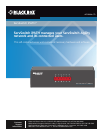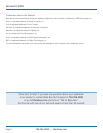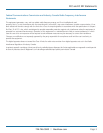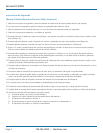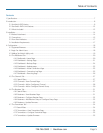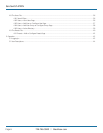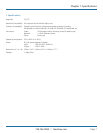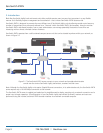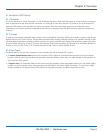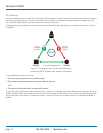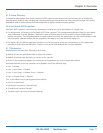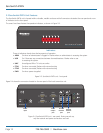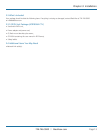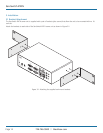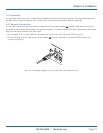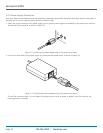
Chapter 2: Overview
724-746-5500 | blackbox.com
Page 9
2.1 ServSwitch iPATH basics
2.1.1 Channels
Think of a channel as a ‘virtual transmitter’. It is virtual because the video, audio and USB streams of a channel do not necessarily
have to originate from the same physical transmitter unit, although in most cases they will. For instance, you could arrange for
video and USB streams to be received from one host computer, while the audio stream came from an alternative source.
Alternatively, two channels could be configured for the same host computer, each with different access rights to suit particular
situations.
2.1.2 Groups
In order to accommodate potentially large numbers of users and devices, ServSwitch iPATH uses a system of groups: User Groups,
Receiver Groups and Channel Groups. Groups allow the administrator to apply collective settings to all members and also to take
full advantage of Inheritance. Inheritance allows members of a group to benefit from settings and permissions made within other
groups to which their group is linked. This saves administration time because members do not need to be individually altered. For
instance, if Sam is in User Group 1, all Channels accessible to User Group 1 will be available to Sam.
2.1.3 User Types
This guide refers to the two main categories of users involved with the ServSwitch iPATH system:
• AnAdmin (administrator) user accesses the ServSwitch iPATH system via a network-linked computer running an Internet
browser. Once the necessary username and password have been entered, Admin users can make changes to the operation of
the ServSwitch iPATH system.
• ARegular user has a keyboard, video monitor and mouse (plus speakers where appropriate) attached to a ServSwitch Agility
receiver unit and can access one or more computers that are linked to ServSwitch Agility transmitters. The ServSwitch Agility
receiver provides an On-Screen Display (OSD) that lists all accessible computers and allows easy access to them.



